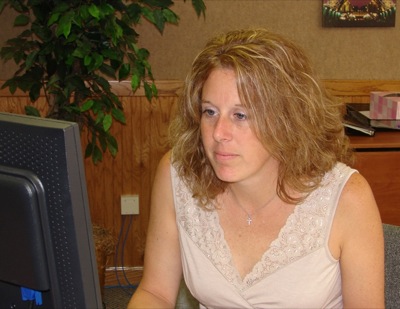Saturday, August 23rd, 2008
Company pitches 'manure to energy' idea to commissioners
Energy business seeking county land for plant site
By Shelley Grieshop
A Cleveland-area company is seeking county-owned land to build a plant that would use cow manure to produce electricity.
Joel S. Keller, CEO of R&A Energy Solutions LLC, North Ridgeville, this week gave a proposal to Mercer County commissioners asking them for use of county land west of Celina. The company feels the property - east of state Route 118 and south of state Route 29 - would be a good site for a renewable energy plant.
Keller said the plant would process about 100 tons of agricultural waste per day to produce 6.2 megawatts of power, which would be sold to utility companies. The plant would likely employ about a dozen people, he said.
Commissioners made no decision on the proposal. During the discussion, however, they tried to persuade Keller and his associate to seek property in southern Mercer County.
"The lower third of the county has the biggest majority of dairy livestock," Commissioner Bob Nuding explained, adding transportation costs would be lower.
Near the property being sought by Keller is land already earmarked as part of a $6 million lake clean-up project - an endeavor with the city of Celina. That project involves pumping sediment from Grand Lake through a pipeline to a site west of Fleetfoot Road and south of state Route 29.
Keller said Mercer County as a whole has a wealth of cow manure, one of the key ingredients his company is seeking for their renewable biomass operation. Keller also admitted the rural Celina location is one of only a few tracts in the county where companies can locate and be eligible for federal tax credits.
"We can get back up to 39 percent of (the project cost) as a tax credit over a seven-year period," Keller told The Daily Standard.
The tax credit is part of a federal economic development program called New Markets and Community Renewal, which was supported by former President Bill Clinton and went into effect in December 2000. The goal was to encourage private sector equity investment in economically distressed areas.
Keller told commissioners his company's "waste to energy" process produces little odor, is environmentally friendly, produces no ground or surface ground water pollution and eliminates the future production of methane from landfills.
The company uses a pyrolysis method, which takes waste and heats it in a zero or near zero oxygen environment where the organic components rapidly vaporize the waste into a dry form of gas such as methane, ethane, propane and butane. Once it is gasified, it creates heat to generate electricity.
The process also can produce other types of power such as steam and hot water.
Ash, which is created as an end result of the process, is sterilized and recycled for use as a filler for concrete, road repair, for certain industrial/manufacturing operations or can be applied to farm fields.
Commissioner Jerry Laffin said many local farmers already sell their manure for profit or use it themselves on their farm for fertilizer. Keller didn't elaborate on how much he could offer farmers for their cow manure.
For the last year, his company contracted with Hopewell Dairy - a mega-farm on Tama Road near Rockford - for the purchase of manure from their 2,500 head of dairy cattle. Keller said the partnership dissolved recently due to a change in management.
The company currently uses the pyrolysis method in projects in Hicksville, South Charleston, Kenton and Niles, all in Ohio. Besides manure, some of their other sites use wood, garbage, trash and crops as renewable energy sources.
Keller said utility companies across Ohio are obligated by law to incorporate renewable energy sources with their traditional means. Senate Bill 221, signed by Ohio Gov. Ted Strickland in May, requires companies such as Dayton Power & Light and Midwest Electric to increase their purchase of renewable energy for electricity in the coming years.




